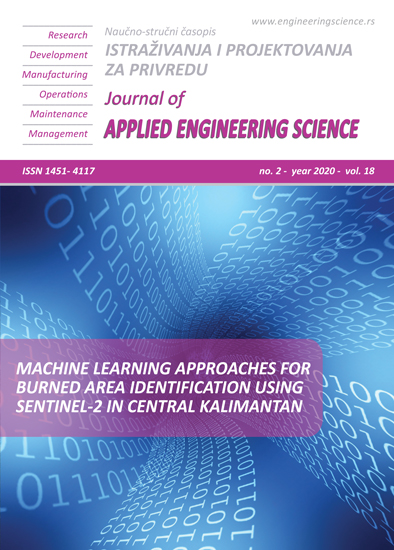COST EFFICIENCY OF OPTIMIZING AUTOMATIC TEMPERATURE CONTROL PARAMETERS IN A DIESEL ENGINE COOLING SYSTEM ON A CRUISING VESSEL – A CASE STUDY
Abstract
With the enforcement of international regulations aimed at reducing environmental pollution, various measures and procedures have been proposed to reduce fuel consumption and increase energy efficiency of ships. Cruising ships that are commonly visiting some of most sensitive and protected sea areas are of particularly interest.
This case study outlines measure that can be applied to cruising vessels without installing new or modifications of existing systems and will require somewhat increased attention of chief engineer during voyage.
Modern medium speed marine diesel engines, out of the total energy contained in the fuel, utilize slightly less than half while the rest is a thermal loss. Therefore, ships are equipped with waste heat recovery systems utilizing the excessive heat of diesel engine exhaust gases and cooling water. The findings in this paper shows that correct selection of parameters in automated control of cooling water temperature results with a significant improvement of diesel engine thermal efficiency, reduced fuel consumption and improved costs efficiency. The results are applicable for all similar marine or industrial power systems as well.
References
[2] OCIMF. (2011). GHG Emissions- Mitigating Measures for Oil Tankers. London: OCIMF Oil Companies International Maine Forum, available at:
https://www.ocimf.org/media/8922/GHG%20Emission-Mitigating%20Measures%20for%20Oil%20Tankers%20Part%20A%20Review%20of%20Reduction%20Potential%20FINAL.pdf , 22/05/2019
[3] Energy saving – course, ABB, Helsinki 29/08/2013 – personal records
[4] Technical documentation of the ‘Voyager’ class cruising ship – personal records
[5] Technical parameter records from the ‘Voyager’ class cruising ship –personal records
[6] Wärtsilä 46F Product Guide, June 2016
[7] https://shipandbunker.com/prices , 17/09/2019

